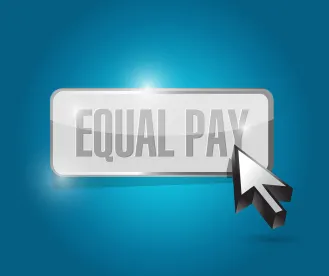The Massachusetts Equal Pay Act (“MEPA”), which amends the Massachusetts Equal Pay Law, goes into effect July 1, 2018, and applies to all employers regardless of their size, including the state and its municipalities. Massachusetts was the first state in the country to pass an equal pay law and, in fact, preceded the federal Equal Pay Act by 18 years. The 2018 amendments make MEPA one of the strongest pay equity laws in the country, intended to close the reported 84.3.% pay gap for working women in Massachusetts. In advance of this upcoming deadline, Attorney General Maura Healey (“AG”) issued MEPA Guidance on March 1, 2018.
MEPA OVERVIEW
MEPA prohibits employers from paying different wages to employees of different genders who perform comparable work, unless variations are based on one or more of six statutory factors. MEPA defines “comparable work” as work that requires substantially similar skill, effort, and responsibility, and is performed under similar working conditions. An employer may not determine comparability based on job titles alone; actual job functions and duties must be taken into account. Wages are defined as “all forms of remuneration for employment.”
MEPA also imposes three additional restrictions on employers. First, employers generally may not seek salary or wage history from prospective employees. Second, employers generally may not prohibit employees from discussing their pay or that of co-worker. (This has long been prohibited by the National Labor Relations Act.) Third, employers may not retaliate against any employee for an exercise of rights under MEPA.
Importantly, MEPA makes clear that employees’ salary histories are not a defense to liability, nor is a specific intent to discriminate based on gender required to establish liability under the law.
Bans on salary history disclosure have gained ground in recent years and have been implemented in other states and municipalities. Many believe that permitting employers to request salary history perpetuates pay inequity, and that banning the disclosure of such information will require employers to consider a candidate’s qualifications and rely more on market data in setting compensation.
GUIDANCE SUMMARY
The Guidance sets forth and further defines the key terms for determining “comparable work” as follows:
- “Skill” includes “such factors as experience, training, education, and ability required to perform the jobs.”
- “Effort” is described as “the amount of physical or mental exertion needed to perform a job.”
- “Responsibility” is explained as encompassing “the degree of discretion or accountability involved in performing the essential functions of a job, as well as the duties regularly required to be performed for the job.”
- “Working conditions” mean “environmental and other similar circumstances customarily taken into account in setting salary or wages,” which can include physical surroundings and hazards.
As used in MEPA, “substantially similar” means that skill, effort, and responsibility “are alike to a great or significant extent, but are not necessarily identical or alike in all respects.” Minor or immaterial differences in skill, effort, or responsibility will not prevent two jobs from being considered comparable.
MEPA permits differences in pay for comparable work only when based upon:
- seniority system (provided that time spent on leave due to pregnancy, protected parental, family and medical leave shall not reduce seniority);
- merit system;
- system which measures earnings by quantity or quality of production, sales, or revenue;
- geographic location in which a job is performed;
- education, training or experience to the extent those factors are reasonably related to the job; or
- travel, if the travel is a regular and necessary condition of the job.
DAMAGES
An employer that violates MEPA generally will be liable for twice the amount of unpaid wages owed to the affected employee(s) plus reasonable attorneys’ fees and costs.
SPECIAL DEFENSE
However, the law provides a complete defense for any employer that, within three years of a claim, conducted a legally sufficient self-audit of their pay practices, provided that the self-audit was reasonable in detail and scope, and the employer establishes that it has made reasonable progress towards eliminating any prescribed gender-based wage variations discovered in the audit.
The Guidance explains that whether an evaluation is “reasonable in detail and scope” depends on the “size and complexity of an employer’s workforce,” in light of factors including “whether the evaluation includes a reasonable number of jobs and employees,” and is “reasonably sophisticated.” If disparities are not yet eliminated, the employer must show that they will be “in a reasonable amount of time.”
The Guidance includes resources for employers in appendices including:
- a guide for conducting self-evaluations,
- a pay calculation tool, and
- a checklist to consult when assessing whether existing policies and practices comply with MEPA.





 />i
/>i

